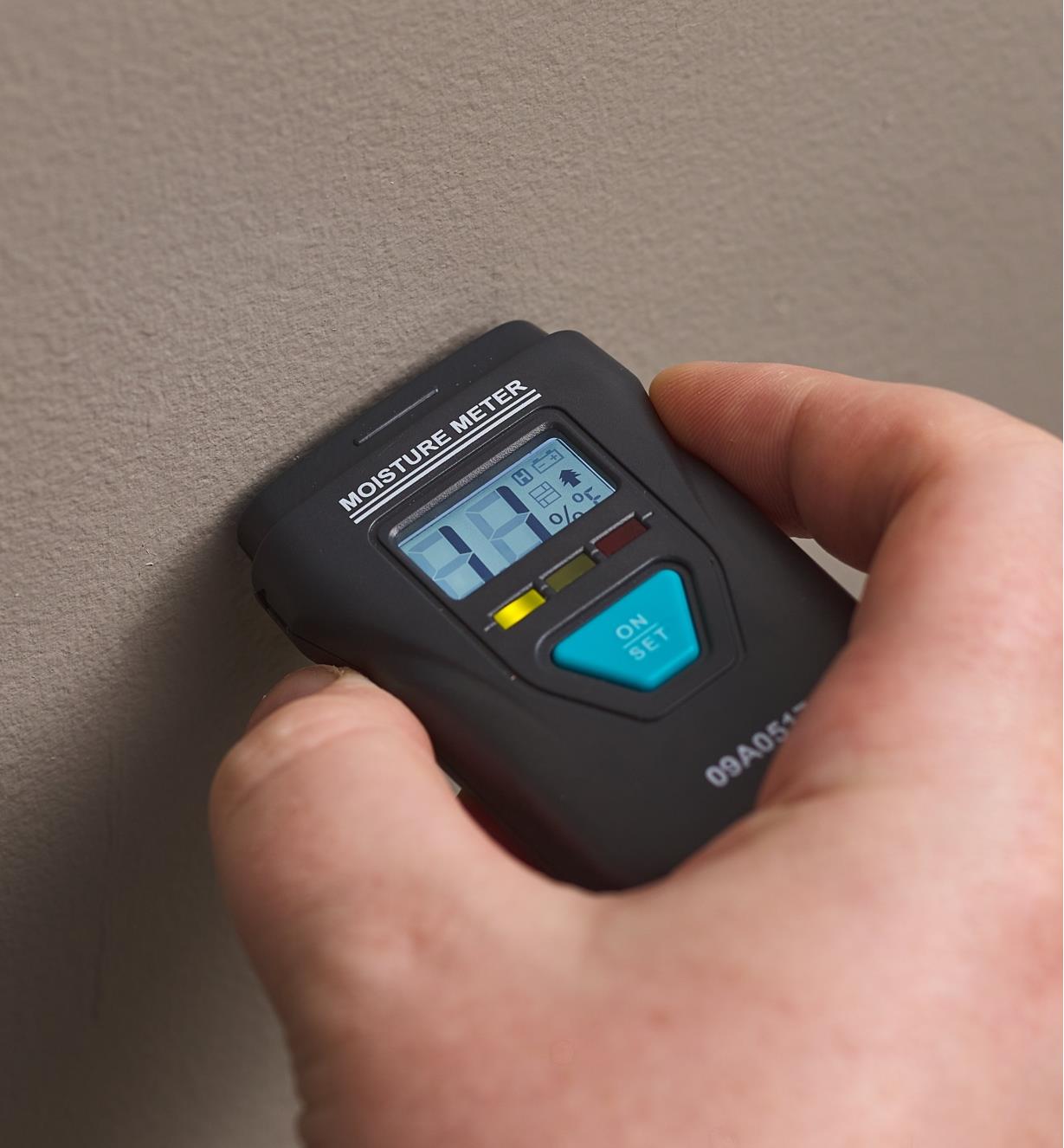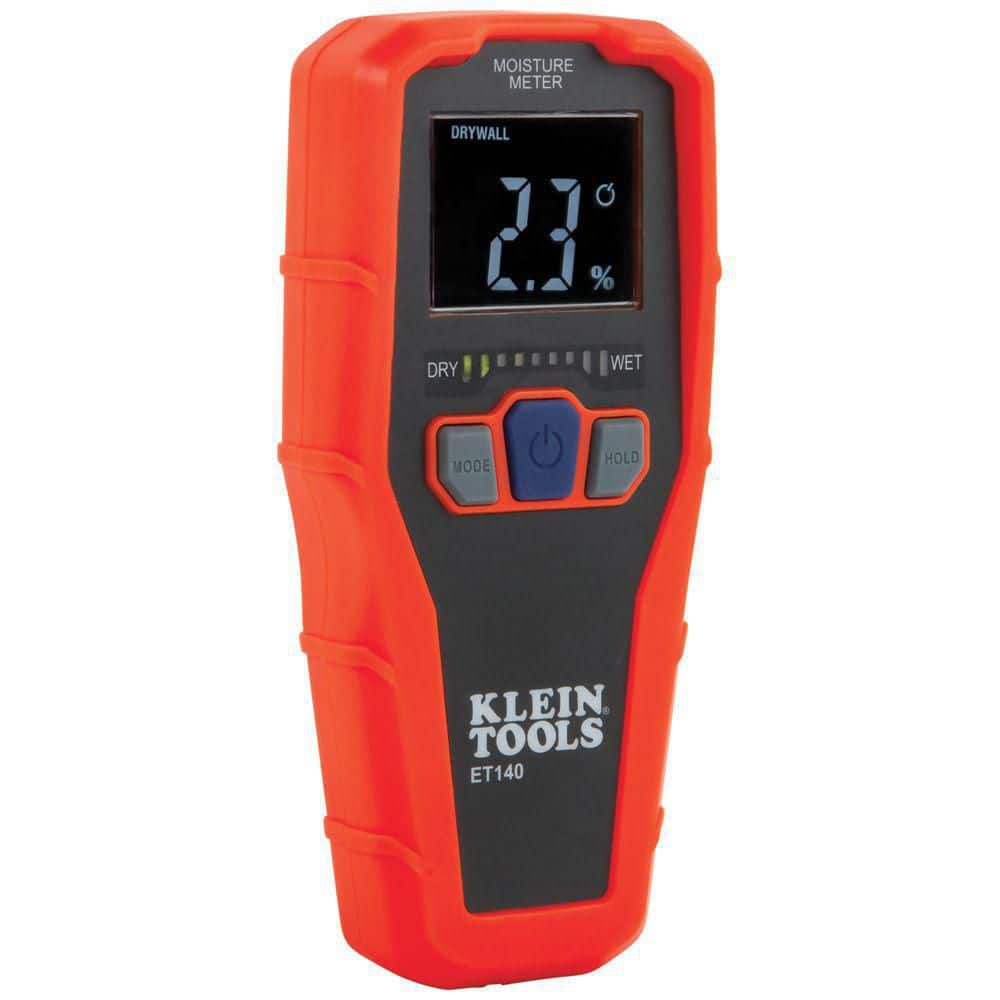Moisture Meter Reviews: Comparing the very best Versions for Specialist and Do It Yourself Usage
Wiki Article
The Ultimate Guide to Dampness Meters: A Comprehensive Introduction and Exactly How They Can Save You Cash
Wetness meters offer as important devices in spotting and checking moisture content in materials, helping in protecting against costly damages and making sure the top quality of products. Comprehending the subtleties of various types of moisture meters, their applications, and the prospective cost-saving advantages they offer can be a game-changer for professionals and services alike.Sorts Of Wetness Meters
One usual kind is the pin-type wetness meter, which determines the electrical resistance between 2 pins put right into a product. Pinless wetness meters, on the other hand, use electro-magnetic sensing unit plates to check a bigger location without triggering damages to the material's surface.
Infrared dampness meters gauge the thermal properties of a material to identify its dampness material non-invasively, making them valuable for applications where pin or pinless meters may not be suitable. Recognizing the different types of dampness meters available can aid sectors select the most ideal tool for their particular moisture measurement demands.

Benefits of Using Moisture Meters
Dampness meters use vital benefits in precisely keeping an eye on and evaluating moisture degrees in diverse materials and environments. One of the key advantages of utilizing moisture meters is the avoidance of prospective damage created by excess dampness.
Moreover, utilizing moisture meters can bring about boosted energy performance. By recognizing areas with high moisture degrees, such as leaks or poor insulation, changes can be made to enhance power preservation and reduce energy expenses. In agricultural setups, wetness meters play an important role in optimizing plant yields by making it possible for farmers to keep an eye on soil dampness levels and make informed watering decisions. Overall, the advantages of using moisture meters extend across different industries, supplying cost-effective options and promoting much better quality control methods.
Just How to Choose the Right Wetness Meter
When picking a dampness meter, it's important to ensure that the meter is ideal for the details product you will be screening. Various materials have varying electrical homes that can impact wetness readings, so choosing a meter developed for your material is critical for precise results. By meticulously examining these factors, you can select a moisture meter that fulfills your needs and gives accurate dampness measurements for your jobs.Proper Strategies for Moisture Meter Use

Cost Savings Through Moisture Meter Applications
Just how can the tactical use of dampness meters lead to substantial expense savings throughout various sectors? In the agriculture sector, moisture meters help in determining the ideal time for harvesting plants, preventing excess or over-drying moisture that can affect the last product's high quality.
Similarly, in building, dampness meters assist protect against costly damages by detecting wetness degrees in building materials, such as timber or concrete, which can lead to architectural issues if not attended to quickly. By determining trouble areas at an early stage, service providers can take corrective procedures to stay clear of extensive repair work or substitutes, inevitably conserving money and time.
Additionally, in the food processing market, dampness meters are essential for keeping track of product high quality and making sure conformity with safety and security laws. By accurately measuring moisture material in food, makers can protect against spoilage, maintain freshness, and reduce waste, resulting in substantial price financial savings. On the whole, the strategic application of moisture meters is a beneficial investment that can result in considerable cost reductions and improved performance throughout various markets.
Final Thought
Finally, wetness meters are important tools for spotting and measuring dampness degrees in different materials. By utilizing the appropriate dampness meter and complying with appropriate techniques, customers can properly stop expensive damages triggered by excess dampness. Purchasing a top quality wetness meter can result in significant price financial savings in the future by determining potential issues early on and enabling prompt remediation. Ultimately, moisture meters are important tools for maintaining the honesty and long life of products and structures.Dampness meters serve as crucial tools in finding and keeping track of moisture web content in materials, helping in protecting against try this costly damages and making certain the top quality of products. Infrared wetness meters determine the thermal residential properties go of a product to determine its wetness web content non-invasively, making them useful for applications where pin or pinless meters may not be appropriate.Dampness meters provide vital benefits in accurately keeping track of and examining dampness degrees in varied materials and atmospheres. In farming setups, dampness meters play a crucial role in enhancing plant yields by allowing farmers to check dirt dampness levels and make informed irrigation decisions.In final thought, wetness meters are beneficial tools for measuring and finding dampness degrees in numerous products.
Report this wiki page